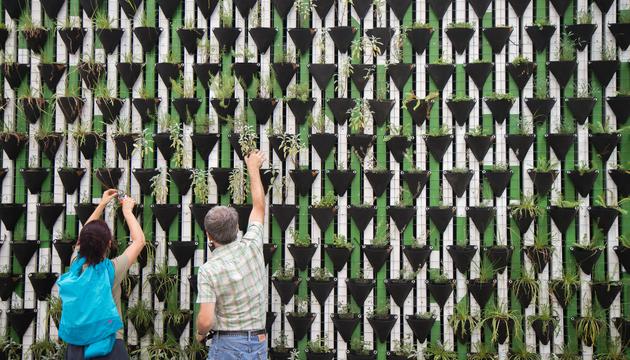Local climate praxis: bridging the gap between theory and practice on local climate action

An online mini conference hosted by the UK Place-based Climate Action Network (PCAN), in conjunction with the Royal Geographical Society.
The event brings together international scholars working on a range of topics relating to local climate praxis and to discuss the challenges bridging climate theory and practice within place-based climate action.
Programme
14.00-14.05: Welcome and overview of event
14.05-14.20: Keynote: Prof. John Barry, PCAN & Queen's University Belfast
14.20-15.20: Break out Sessions 1 (Choose either 1.1 or 1.2)
Breakout Session 1.1: Applied research on the local climate praxis
- Suay Melisa Ozkula (University of Sheffield), Judging digital “place” in global climate change initiatives
- Rory Fitzpatrick (University of Leeds), "How has climate change mattered to you over the past 3 months?" Results from a survey during the UK COVID-19 lockdown.
- Bob Walley (University of Central Lancashire), Raising awareness of climate change creatively through free and accessible community engagement festivals
- Andrew Walker (Local Government Information Unit), The return of locally led place shaping
Breakout Session 1.2: What community means in local climate action
- Lucy Stone (Our Common Climate), Common ownership of the green economy; how collective decision-making and ownership models could accelerate climate progress and address inequality.
- Rebecca Willis and David Tyfield (Lancaster University), Turning targets into action: tackling climate change in a local context
- Wolfgang Haupt (Leibniz-Institute for Research on Society and Space, Germany), Explaining climate policy pathways of unlikely city pioneers: the case of the German city of Remscheid
- Rebecca Wells (LSE), The use of Citizen Assemblies and Juries in cities as a deliberative tool for addressing climate change: A comparative case study of Oxford and Leeds
15.20-15.30: Break
15.30-16.30: Break out Sessions 2 (Choose either 2.1 or 2.2)
Break out Session 2.1: Innovative forms of local engagement
- Peter Harper (University of Bath), A local plan to achieve net-zero emissions by 2030
- Robert Connell (The University of Edinburgh), How can city climate commissions mobilise the importance of place in encouraging private sector action on climate change?
- Ellie Murtagh (Sniffer/Adaptation Scotland), Unpacking 'place' in place-based adaptation - A framework for effective place-based adaptation in practice
- Erika Russell (University of Surrey), Developing a carbon baseline to support multi-stakeholder, multi-level governance at a county level
Break out Session 2.2: Critical perspectives on place-based climate action
- Rebecca Sandover (University of Exeter), Contrasting public and political actors’ views of Citizen’s Assemblies: An exploration of the perceived legitimacy and value of deliberative public engagement on climate change
- Clare Wharmby (Edinburgh Centre for Carbon Innovation), Understanding the carbon impact of city-wide decision-making
- Zoe Robinson (Keele University), Universities as places of climate praxis
- James Derounian (Society of Local Council Clerks/ De Montfort University) and Elisabeth Skinner (Society of Local Council Clerks), Enacting “place-based initiatives at the local level”: The actuality and potentiality of 10,000 ultra-local councils
(Abstracts can be viewed here: https://pcancities.org.uk/abstracts-local-climate-praxis-conference-2020)
16.30-16.55: Plenary discussion and closing keynote from Professor Vanesa Castan Broto, Urban Institute, University of Sheffield
16.55-17.00: Closing remarks
Register to attend: https://www.eventbrite.co.uk/e/local-climate-praxis-bridging-the-gap-between-theory-and-practice-on-local-tickets-117377046907
Image: Photo by Daniel Funes Fuentes on Unsplash

